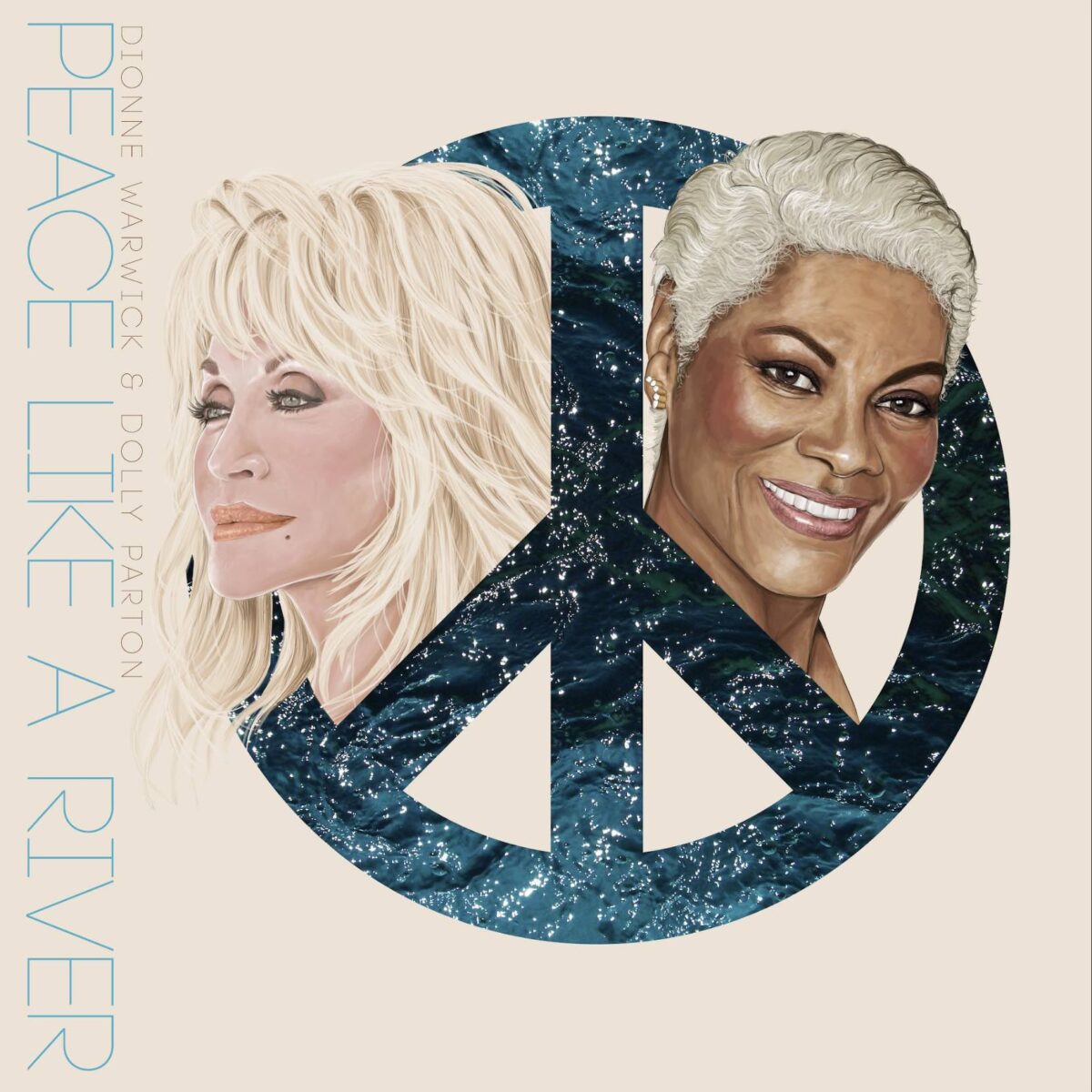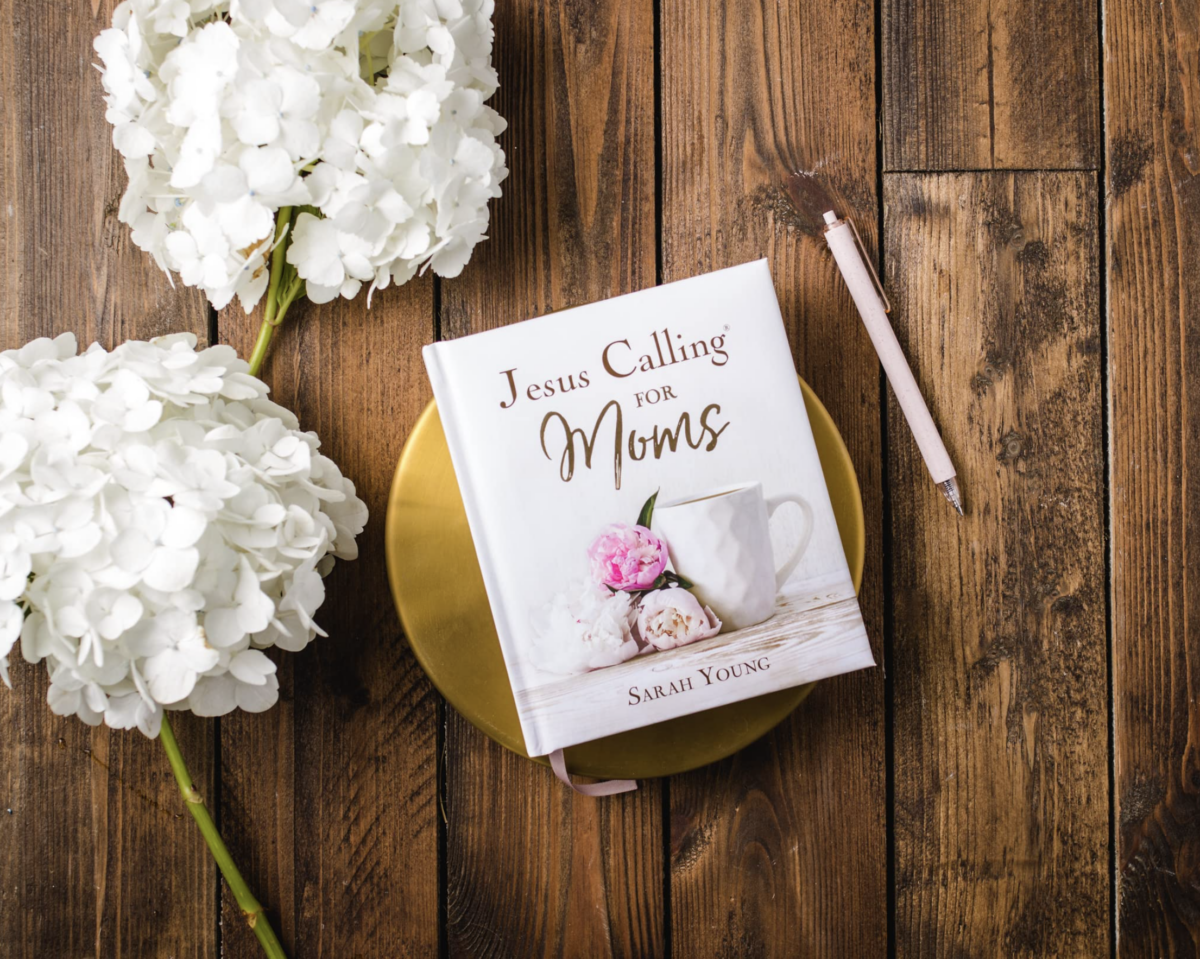A Mother’s Love and A Parent’s Prayer: Dionne Warwick, Damon Elliott, & Andy and Sandra Stanley
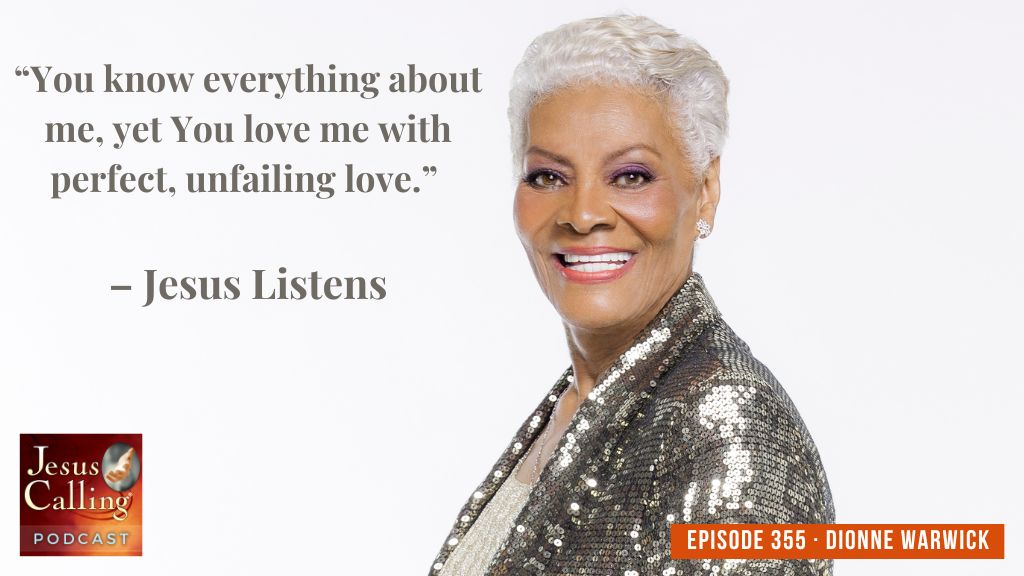
Dionne Warwick: All the things that He does for me. I am so thankful and grateful for. He’s given me a path to follow and a plan He has for me. And I’m following that plan and that path. So whatever comes within the realm of that, I’m supposed to face.
A Mother’s Love and A Parent’s Prayer: Dionne Warwick, Damon Elliott, & Andy and Sandra Stanley – Episode #355
Narrator: Welcome to the Jesus Calling Podcast. It’s been said that parenting is a lifelong job that doesn’t end when your children grow up. Our guests this week know firsthand how hard it is to be a parent, and they’ve done the work to build the kind of relationship with their children that is returning dividends in their adulthood. And now, their kids really appreciate them as people, and the influence they’ve had in helping them become who they are today.
Dionne Warwick is a six-time Grammy Award-winning singer who raised her son Damon—who is also a musician—as a single mother. Despite her status as an international superstar, Dionne made it a priority to carve out meaningful moments with her children. Andy and Sandra Stanley are preachers, authors, and parents of three. One of their greatest prayers was that their relationship with their kids would evolve into a friendship and that as adults, they’d still appreciate their family time.
Let’s start by hearing from Dionne and Damon.
Dionne: Hi, I’m Dionne Warwick. I’m a recording artist. I come from a gospel-singing family, my entire family were gospel singers. My mother’s side of the family had brothers and sisters and evolved into becoming the Drinkard Singers.
Well, we decided since we couldn’t be the Drinkard Singers, that we could be a gospel group. And it was comprised of my sister, Dee Dee, Sylvia Shemwell, and Carol Slade and myself. And we were called the Gospelaires. We entered the gospel shows, which originated at the Apollo Theater, and we won. So I guess we became professional gospel singers.
Musician, Mother, and Always True to Herself
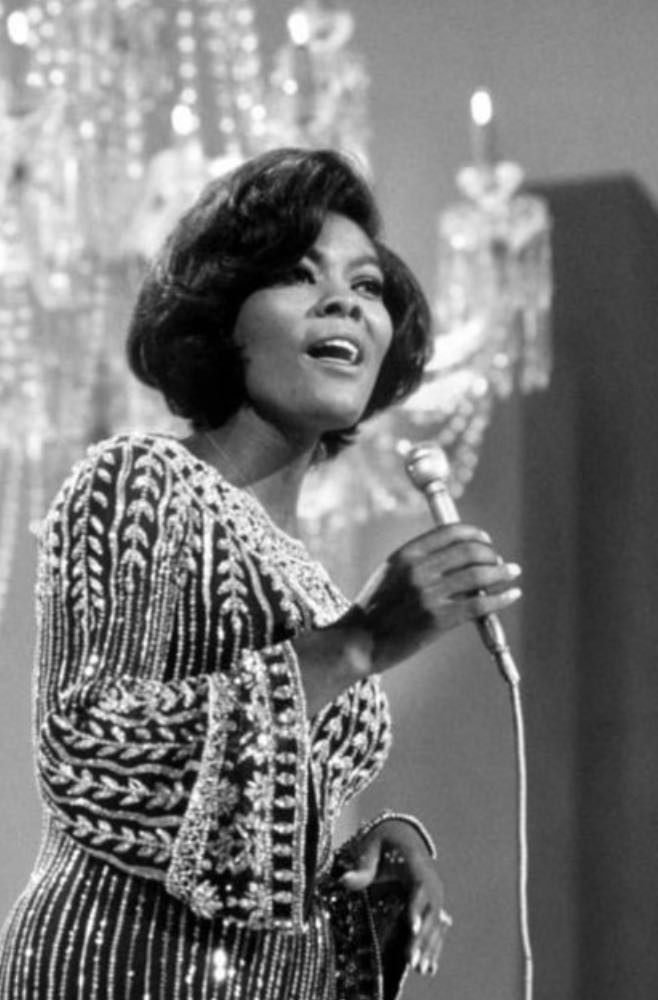
Many years ago, I was fortunate in meeting Hal David [who wrote] some of the most meaningful and inspirational and joyful words for me to sing, and don’t think I’ve sung any better than his.
I was taught at a very, very early age, be who you are. You can’t be anybody else. I didn’t want to be anybody else other than me. So I had no reason to be anybody other than who I am.
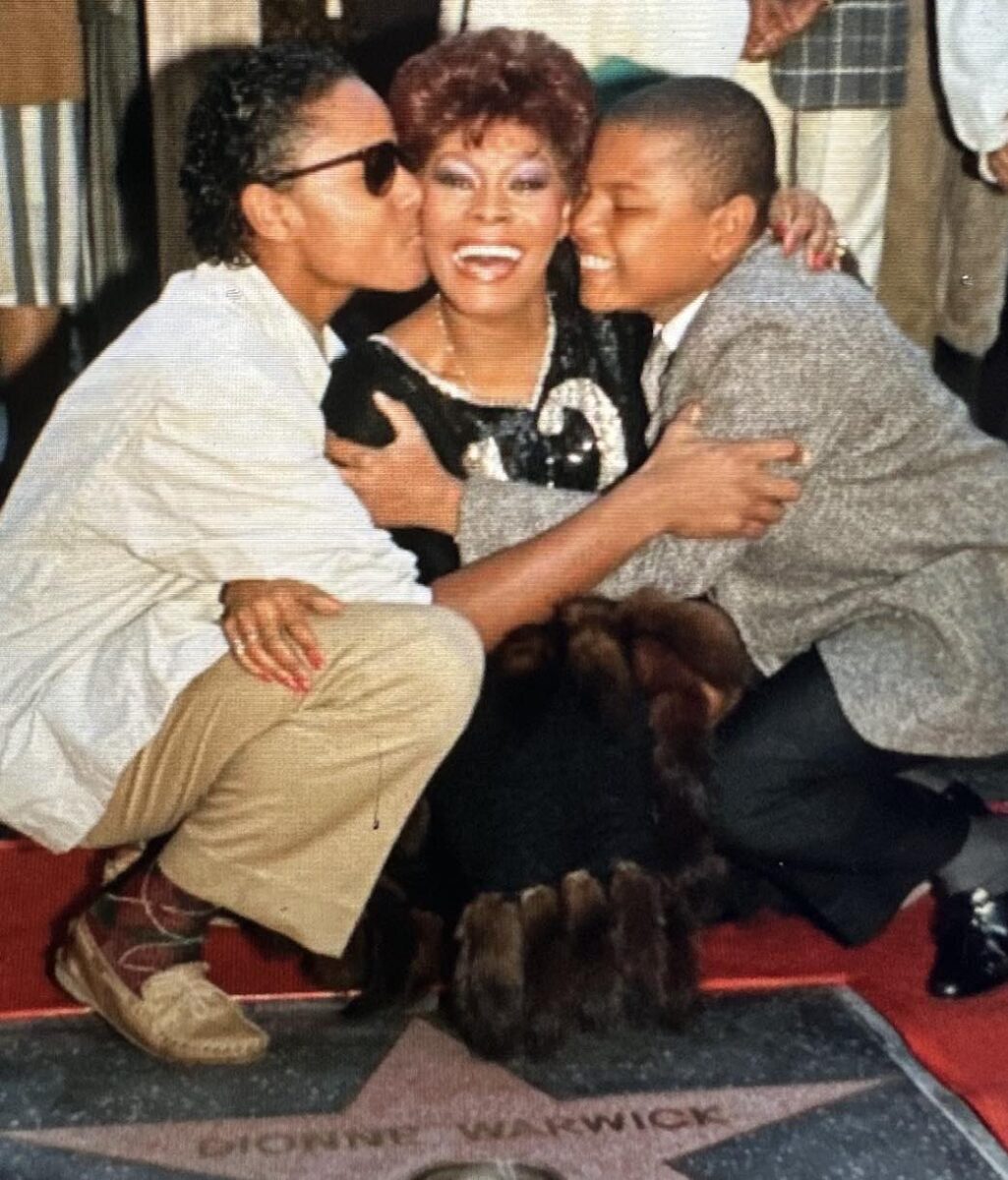
Damon Elliott: Growing up, mom never missed a softball game, never missed a tennis game. She was always there at the end of me and my brother getting in trouble, meaning that she was always right there to catch us. She raised us by saying—I will never forget—she sat us down once we both were of age to kind of figure out what was going on. And she said, “You know, you might see me on TV, you might see me on stage under these lights, and people might go a little goo-ga over me, you know, but I’m your mommy and I’ll always be your mommy.” So that’s just the way it’s always been. She was preparing me to be able to kind of step into this arena and be able to handle it.
Dionne: One thing, I was not aware that their interest was going to fall into that category of music. My whole sense of their well-being is basically whatever makes them happy. They could have been mechanics for all it mattered, as long as it made them happy. So it’s exciting that they chose music, and the reward has been [their] success in it.
Damon: And she’s just been that way and has been the greatest source… she’s like our sounding board. So that’s kind of how both me and my brother looked to Mom. We call her every day with everything.
One of the greatest lessons or things that I’ve learned is just to truly be who I am. And sometimes I know it might drive Mom a little crazy, but it’s part of the lesson that I learned to be who I am and to stay true to who I am. And I’ve done that through every walk, it is part of growing up. You go through a lot of ebbs and flows, but I think as long as you’re true to yourself, it’s all good.
“One of the greatest things that I’ve learned is just to truly be who I am.” – Damon Elliott
A New Gospel Record with Dolly Parton
Damon: I’ve been mingling a little bit in the country music scene, with Mr. Billy Ray Cyrus. And it’s funny, Dolly Parton to me—even though Mom hasn’t met her yet—I’ve always called her Auntie D, and it’s funny because everybody calls my mom Auntie, and she’s been Auntie Dolly to me for quite some time now. Being able to work with legends like her, Mom truly has prepared me for it. For me to step in, again, and get in that ring and become a producer, like Mom always says, she’s allowed me to really grow and be a producer. And the only difference is I call her Mommy. And then on this song, it’s Mommy and Auntie Dolly. So it’s like, lots of fun. It’s amazing.
Dionne: When I heard the song, I sent it to Damon, beautifully written, beautiful words to sing. And I’m truly honored that she asked me to be part of it.
Damon: The lyrics are like bringing church on the road. That’s how I feel. Everywhere we’ve been or will be traveling to, starting here in Nashville, hearing the great lyric of Dolly Parton, hearing the great lyric of other writers that are part of this project, it’s truly—when you say bringing the gospel, that’s what we’re doing. But I want to also add that it’s something that’s magical.
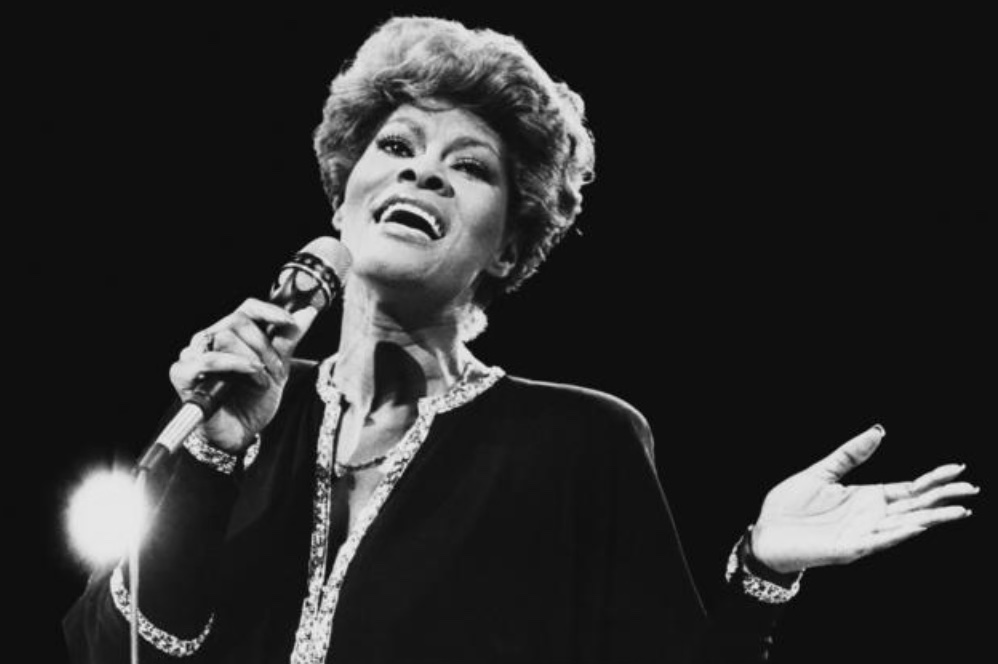
Dionne: I miss gospel very, very much. I miss church. I’m on the road so much, it’s very difficult to get to church. But I was also taught that church is here. It’s not a building. I’m missing the congregation, I’m missing the Word every now and then being given to you, is something I do miss. But being able to sing gospel again and sing with some people that I call friends who are also in the gospel realm of music is very exciting for me and I’m thrilled to be able to do it again.
You know, all the things that He does for me, I am truly thankful and grateful for. He’s given me a path to follow and a plan He has for me. And I’m following that plan and that path. So whatever comes within the realm of that, I’m supposed to face. I have no problem with that.
“All the things that [God] does for me, I am truly thankful and grateful for. He’s given me a path to follow and a plan He has for me. And I’m following that plan and that path. So whatever comes within the realm of that, I’m supposed to face. I have no problem with that.” – Dionne Warwick
Narrator: Damon and Dionne close our time with us by reading a prayer from Jesus Listens June 14th:
Dionne:
I have loved you with an everlasting Love. I have drawn you with loving-kindness. This means that You knew me and loved me before time began! Yet for years I swam around in a sea of meaninglessness—searching for Love, hoping for Hope. All that time, You were pursuing me, ready to embrace me in Your compassionate arms.
You sang me a Love song whose beginning and end are veiled in eternity. You infused meaning into my mind and harmony into my heart. I want to join You in singing Your song. Please use my voice in whatever way You will, as You call people out of darkness into Your marvelous Light.
In Your brilliant Name, Jesus, Amen
Narrator: Check out Dionne and Dolly Parton’s single, “Peace Like A River,” as well as Dionne and Damon’s new song, “I Kneel,” releasing on Mother’s Day.
Stay with us to hear from Andy and Sandra Stanley after a brief message.
A Meaningful Gift: Jesus Calling for Moms
Give the moms in your life the beautiful gift of encouragement, reassurance, and peace with Jesus Calling for Moms!
Fifty Jesus Calling devotions speak to the power of love, the gift of strength, trusting God’s guidance, and so much more. Also included are: a prayer for mothers from Sarah Young, Scripture verses, journaling prompts and space for women to write their own prayers.
Order Jesus Calling for Moms today!
Our next guests are Pastor Andy Stanley, founder of North Point Ministries, and his wife, Sandra. Andy and Sandra Stanley are no strangers when it comes to the joys and challenges of parenting, having raised three children of their own and fostering many more since 2010. They share what they’ve built with their now-adult children over time, and how they got through what they see as the four stages of parenting.
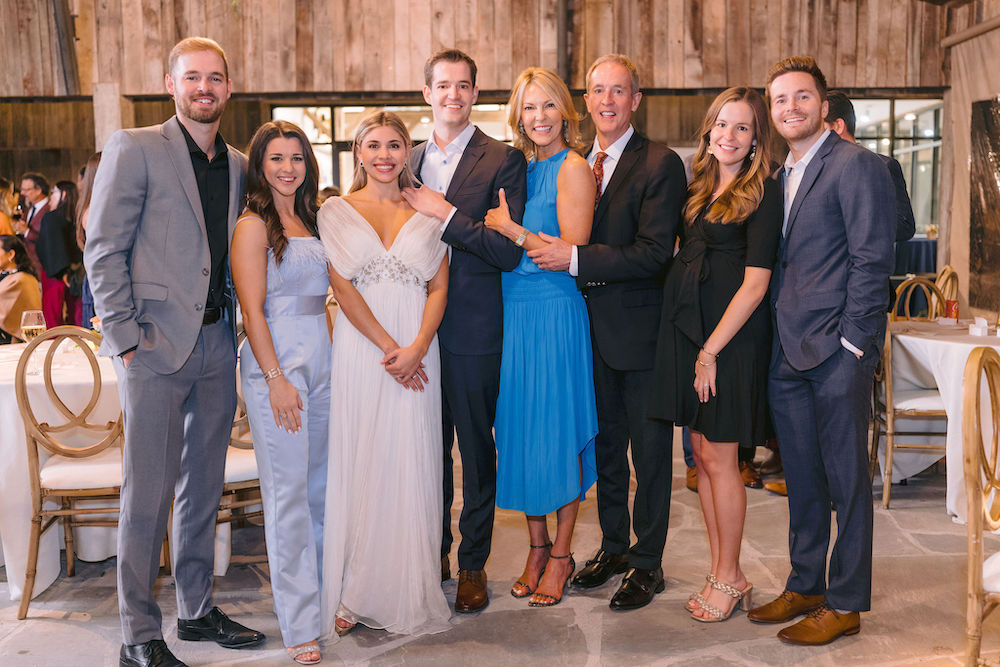
Sandra Stanley: So we’ve got three kids. Andrew is thirty and he’s married to Ana. Garrett is twenty-eight and he’s married to Danielle. And then Ali, our daughter, is twenty-seven and she’s married to Clay. And they have a two-month-old, our first grandbaby. So that’s kind of what our family looks like. We’ve been foster parents for about twelve years, some kids in and out. And right now we are empty nesters and enjoying this season.
Foundational Family Connection Points
Sandra: One of the things that we realized—one of the advantages to living in this time that we’re living in, is there are so many tools for being a student of your kids. We’ve got Enneagram, we’ve got temperament testing, we’ve got love languages, and so many different ways that we can be a student of our kids. And one of the things we learned, all three of our kids have come from the same gene pool, they are so different from each other. And as it relates to just having conversations—whether they’re hard conversations that you need to have, or whether they’re just those connecting conversations—we found that each of our kids was totally, completely different. We needed to use different approaches.
Andy Stanley: The other thing I would add to that is one of the things that Sandra was great at, is we ate dinner together six or seven nights a week.
Sandra: Certainly when they were young, it was most nights.
Andy: At home around the table. And what happened is because that was the pattern when they hit middle school, we continued to do that. When they hit high school, we continued to do that three or four nights a week, even though they were busy with other things. But having established that pattern when they were young and they had no choice, and continuing that pattern, we learned more probably in the middle school and high school years during dinner at home, because the point of dinner with middle school and high school kids is not eating. The point of dinner is conversation.
One of the things we always tell parents is do not make dinner time a time of correction, and don’t make dinner time a time of potentially offensive questions. Don’t correct. Just listen. Ask questions. Listen, listen, listen, listen. And one of the things again, we saw parents do in the middle school and high school years was try to make every moment a teachable moment, but the problem is they don’t want to be taught and they certainly don’t want to be taught at dinner. We made dinner time an information flow zone. There were no bad ideas. There were no wrong attitudes.
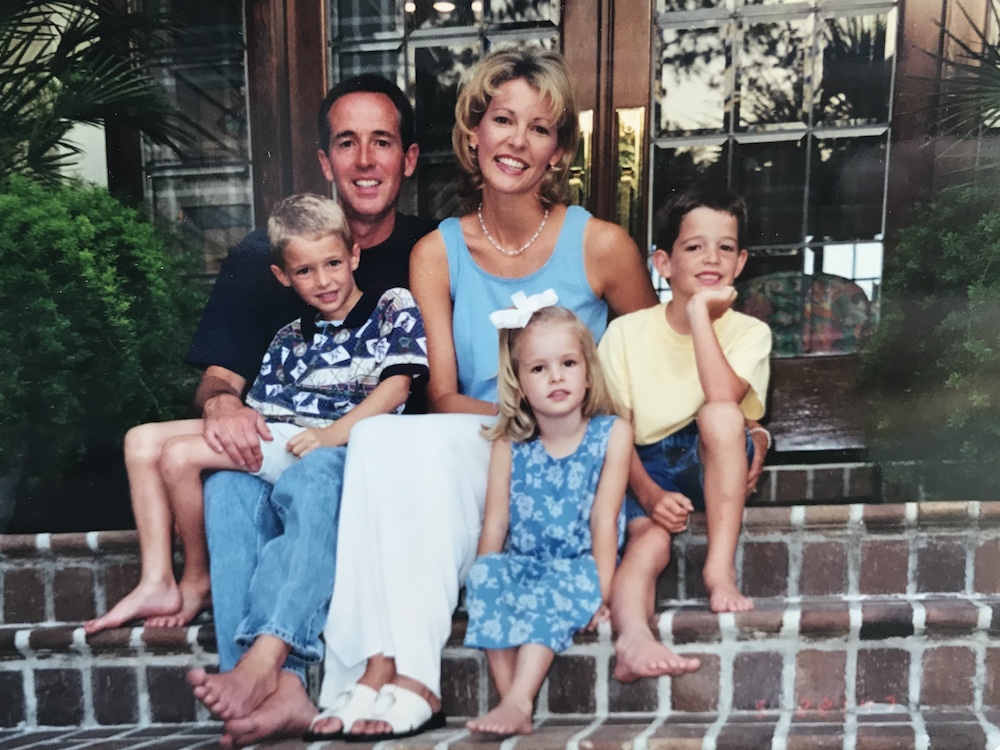
We prayed with our kids at night when they were young, but we continued to pray with them through every season of life. And when we ask our kids, “Hey, what were the things that we did that helped instill spiritual values in you?” And one of the four or five things they said made a big difference is that we continued to have family prayer even through middle school and high school years, even when it wasn’t their favorite thing.
“We prayed with our kids at night when they were young, but we continued to pray with them through every season of life.” – Andy Stanley
Sandra: It really did add to their relationship with each other. They were praying for each other, and all of that added to them choosing each other.
Andy: We decided early on, the win was a relational win, that we wanted kids who wanted to be with each other and with us when they no longer had to be. That dictated how we disciplined and dictated the rules that we established. It dictated our schedule, our priorities, and everything we really parented to that one win. And now on the other side of that process, we think that’s something every parent is going to want. And so we wanted to lay out the strategy that we use to accomplish that.
The reason we want a healthy adult relationship with our children is that we want to continue to have an influence in the lives of our children once they’re adults. And a parent should never give up influence unnecessarily and relationship is influence. We are very hesitant to allow someone we don’t have a relationship with to influence us personally, and we definitely don’t let people we have a bad relationship with influence us. So maintaining a strong relationship along the way is huge, and so that’s why I think parents intuitively know that and they want to get it right.
The Four Stages of Parenting
Sandra: We’ve been in small groups with other adults our whole marriage. And so in those seasons of parenting, we read all the parenting books. We did all the things. And one of the things that stood out to us that we learned was the four stages of parenting.
Stage 1: Discipline Years
And those four stages of parenting, or simply the first one, are the discipline years. It’s when they’re zero to five years old. These are the years where we’re teaching our kids that there are consequences for their actions, and for their good, and for their safety. We just kind of need them to obey. And in this season, consistency is the key. And we disciplined our kids in this season according to three words that started with a D. We knew these were big deals if they were disobedient, dishonest, or disrespectful.
Stage 2: The Training Years
The training years were five to twelve, and that was a little bit different. These were the years where we were putting the why behind the what, and they’re starting to be able to reason a little bit so we can reason with them. And we’re explaining while we’re training with them.
Stage 3: The Coaching Years
And then the coaching years are twelve to eighteen. So we’re standing on the sidelines a little bit more. We’re kind of coaching them while they’re learning to make maybe some independent decisions more and more. And like a coach, there are times that we sort of yank them off the field to make some adjustments, but mostly we’re letting them experience the natural consequences of their actions. And for parents during this coaching season, this is a season where we’re focusing on connection over correction. We really want to focus on connecting with our kids so that when they do hit those walls or come up to something hard, they want to turn to us.
Stage 4: The Friendship Years
And then from eighteen on, these are the years where we are, and just being friends with our kids during this season is super fun. One of the things I realized not too long ago is that if we didn’t know our kids and we met them, we would want to be friends with them. And that seems like a huge win.
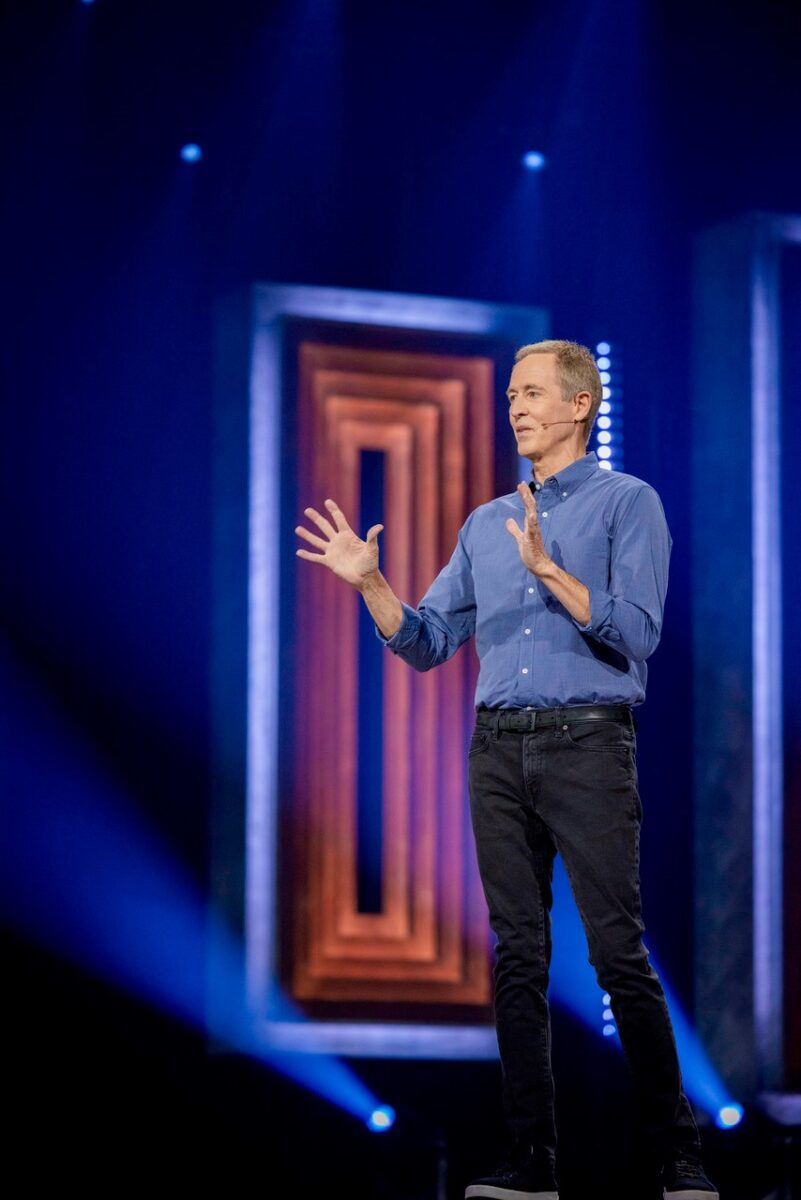
Andy: Yeah. One of the advantages we had, [was] we worked with high school students for ten years together when I worked for my dad [Dr. Charles Stanley] in high school ministry. We saw lots of different parenting models and different approaches. One of the mistakes we saw parents make—and this is before we had kids, but it was kind of a heads up for us—is they tried to become friends with your kids too early. A healthy adult relationship with your children is a reward of following through on these three stages. We decided to try to stay in our parenting seat as long as we needed to through those three stages. And now we’re enjoying a healthy adult relationship with our kids.
Sandra: It’s really fun where we are now. Our parenting goal with our kids was to end up with kids who wanted to be with us and with each other, when they no longer had to be. So when we think about success as it relates to having parented them, getting to this season of life with kids who we have the joy of watching choose each other and choose us when there’s an opportunity, there’s nothing like that. So for us, watching them succeed in their careers, watching them have relationships with their Heavenly Father that we had hoped for, is all so good. But we are also so thrilled and just enjoying watching them choose each other and choose us even, and want to be together, now that they don’t have to be anymore.
“Our parenting goal with our kids was to end up with kids who wanted to be with us and with each other, when they no longer had to be.” – Sandra Stanley
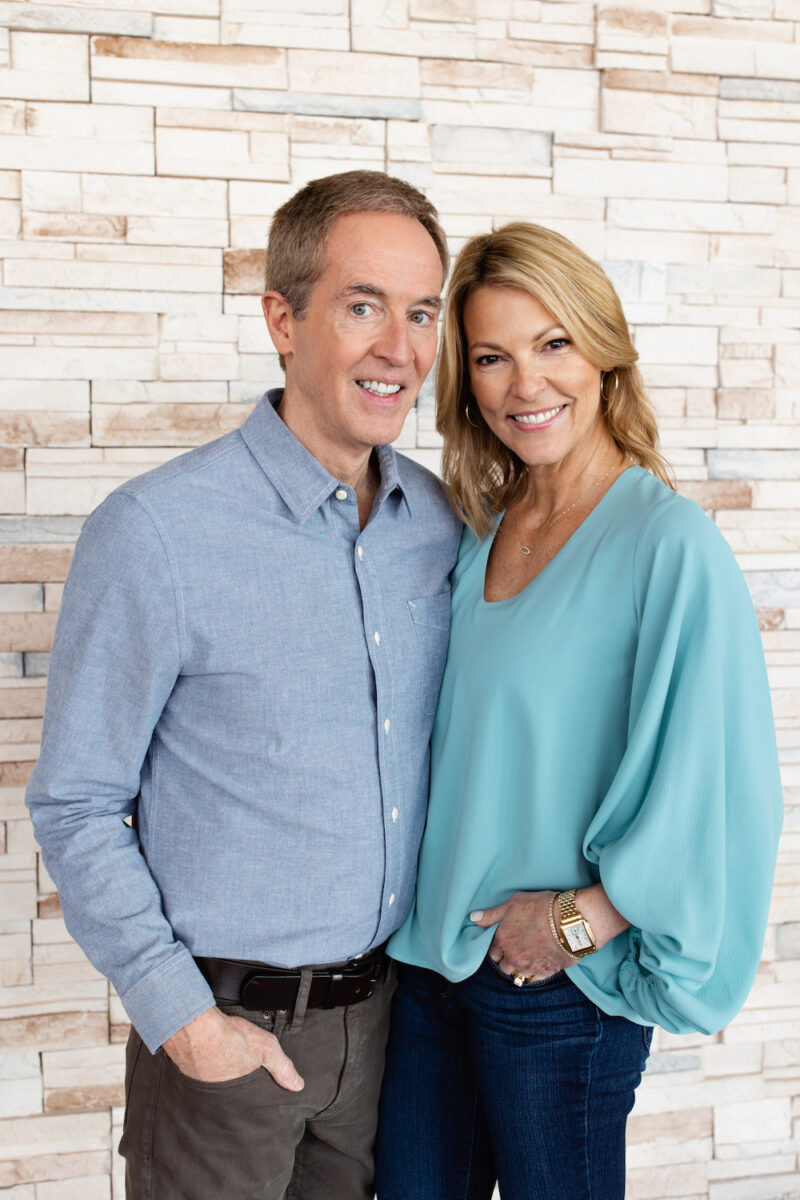
Andy: And that was a very intentional goal for us primarily because of what I saw in Sandra’s family when we were dating. So there were five of them, and they loved being together and they loved being together so much that it stood out to me. And when we were married and had Andrew, I said, “That’s what I want. I think that’s what we should parent toward.” And of course she was like, “What do you mean? Isn’t that what every family is like?”
Sandra: I assumed it.
Andy: I’m like, “No. What your family has is very unusual. It’s very healthy. And I would love for us to parent and move in that direction.” And again, we did, and now we’re on the other side of that and feel like this is something we wanted to share with other parents.
Narrator: Sandra closes our time together by reading a prayer from Jesus Listens, February 22nd.
Sandra:
Dearest Jesus,
Thank you for leading me, step by step, through my life. I ask You to guide me through this day as I hold Your hand in childlike dependence. My future looks uncertain and feels flimsy—even precarious. I know I need to walk by faith, not by sight, believing that You will open up the way before me. Every time I affirm my trust in You, it’s as if I put a coin into Your faith-treasury. In this way, I prepare for days of trouble. I’m thankful that You keep safely in Your heart all the trust I invest in You—with interest compounded continuously. I’ve seen that the more I endeavor to trust You, the more You empower me to do so.
In Your faithful Name,
Amen
Narrator: To learn more about Andy and Sandra Stanley, check out their new book, Parenting: Getting It Right, at your favorite retailer.
If you’d like to hear more stories about navigating family relationships, check out our interview with Reba McEntire and her sisters, Susie and Alice.
Next week: Curtis Chang
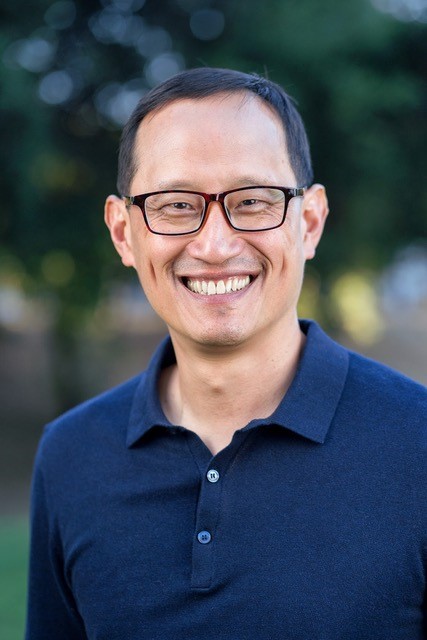
Next time on the Jesus Calling Podcast, we’ll hear from Duke Divinity School faculty member Curtis Chang, who breaks down the root of many people’s anxiety and offers hope in overcoming anxiousness.
Curtis Chang: To be human, to be a creature, means we are always vulnerable to future loss, which means we are ever vulnerable to anxiety. And that if we try to structure our lives or come up with coping mechanisms like the one I did when I was eight years old, waiting for my mom and my parents to come home. These coping mechanisms will never succeed in making anxiety go away, in solving the anxiety problem, because we’re always going to be vulnerable to loss.
